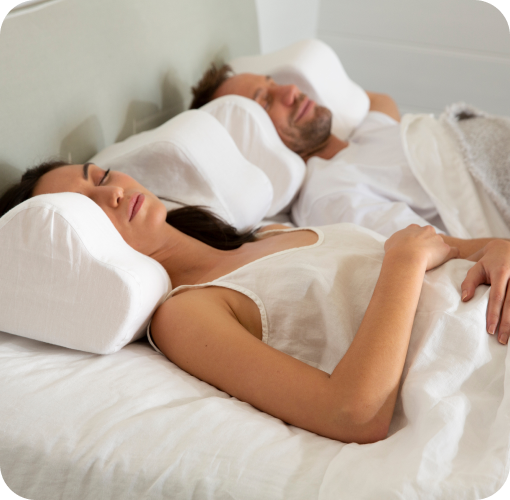If you’ve ever felt guilty for staying up late or puzzled by your early-morning energy, you’re not alone. Your natural sleep-wake preferences aren’t just habits—they’re biological.
Sleep researchers call this your chronotype, and it's largely determined by your genetics. Understanding how your chronotype works can help you build a sleep routine that supports better energy, sharper focus, and improved wellbeing.
What is a chronotype?
Your chronotype is your body’s natural tendency toward being a morning person (lark), an evening person (owl), or somewhere in between.
Scientists have identified at least nine genes that influence chronotype—and your preferences often run in families. If one of your parents is a lark, chances are, you might be too.
General population breakdown:
- 25-30% are morning types
- 20-30% are evening types
- The rest fall somewhere in the middle
Why chronotypes matter
Chronotypes are deeply connected to your circadian rhythm, the 24-hour internal clock that governs sleep, alertness, hormone release, and more.
This means your chronotype affects:
- When you feel most mentally sharp
- When you naturally feel sleepy
- How well you perform at different times of day
- Your vulnerability to fatigue and sleep disruption
You're not lazy, you're just mismatched
Night owls often struggle in traditional 9–5 systems. They may be told they’re lazy or unmotivated, when in fact they’re just trying to stay alert during their biological “off-hours.”
Likewise, forcing a morning person to stay up late can result in irritability, poor sleep, and difficulty concentrating.
One of the most common signs of chronotype mismatch is the feeling:
“I struggle to fall asleep, but once I’m asleep, I’m fine.”
This often isn’t insomnia—it’s your internal clock not aligning with your schedule.
Why chronotype mismatch can be harmful
Living out of sync with your chronotype can lead to more than just tired mornings. Studies have linked misaligned sleep cycles to increased risks of:
- Cardiovascular disease
- Type 2 diabetes
- Anxiety and depression
- Weakened immune function
- Shortened lifespan
The World Health Organization has classified long-term shift work (which forces a reversal of natural rhythms) as a probable carcinogen due to its effect on biological clocks.
How your chronotype changes over time
Chronotypes aren’t static, they shift naturally as we age:
- Children tend to be early risers
- Teenagers shift later, often struggling with early school starts
- Adults usually settle into a stable middle range
- Seniors often revert to earlier rhythms
Understanding these shifts can help explain why your current rhythm may not match the one you had ten years ago and why family members may differ from you.
How to work with your chronotype
You may not be able to control your biology, but you can design your day to respect it.
- Identify your natural rhythm. If you're unsure, track your sleep-wake times when you have no social or work obligations. Or take our chronotype quiz here.
- Align demanding tasks with your peak alertness. Morning people should tackle big projects early; night owls may do better later in the day.
- Get outside in the morning. This strengthens your circadian rhythm and stabilises energy levels, even if you're a night owl.
- Keep a regular sleep schedule. Waking and sleeping at consistent times helps your body optimise sleep quality.
- Practice compassion for your rhythm. Productivity isn't about waking up at 5 am, it’s about working with your energy, not against it.
Up next in our sleep series:
How alcohol and caffeine affect sleep—why your afternoon flat white or evening wine could be disrupting your deepest rest.
Resources for deeper reading:
- Why We Sleep by Matthew Walker (book)
- Matthew Walker’s MasterClass on Sleep
- Walker’s TED Talk: “Sleep is your superpower”
Want more practical tips for better rest?
Explore our Simple Sleep Guide or sign up by finding out your Sleep Chronotope, and receive the full series straight to your inbox.














